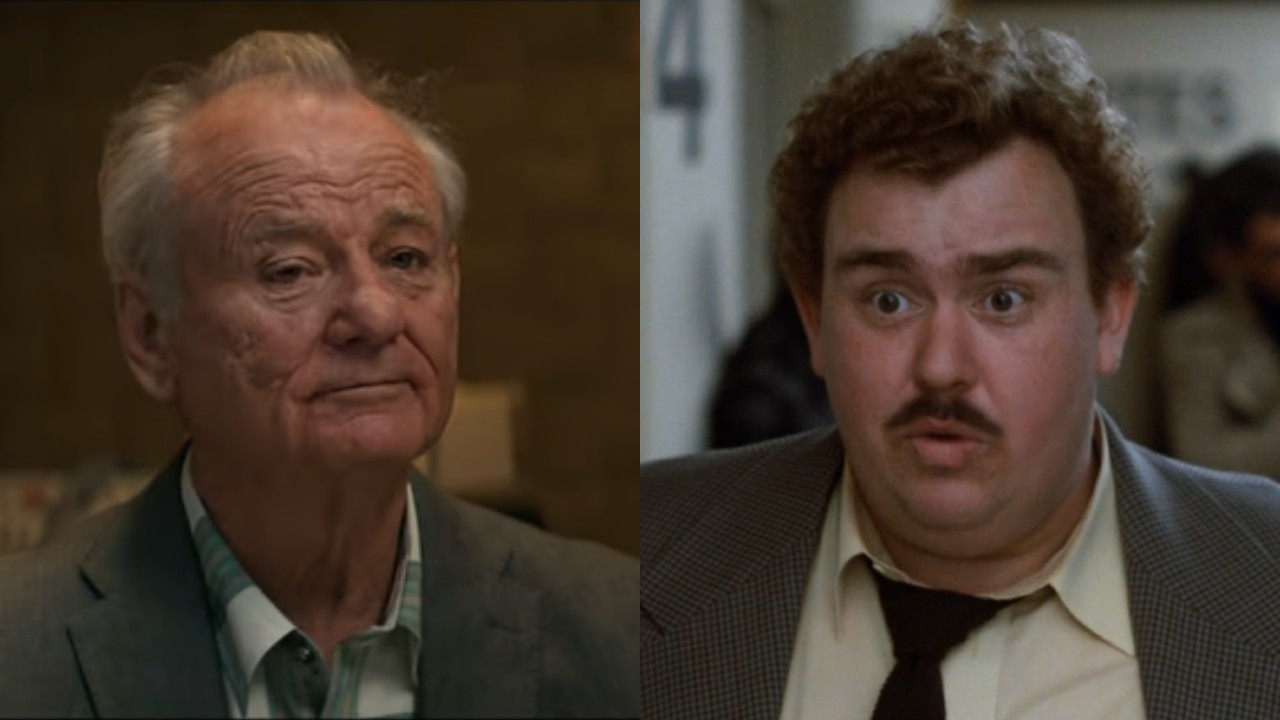How A Criminal Organization Created A Fake Big Brother House To Take Women Captive

Your Daily Blend of Entertainment News
You are now subscribed
Your newsletter sign-up was successful
There has always been something a bit unsettling about the popular reality television series Big Brother. First created for Danish television in 1999 by John de Mol Jr., the reality television series takes its name from George Orwell's novel 1984 and allows viewers a glimpse into the lives of everyday people, co-existing inside one big house with cameras capturing their every waking activity. One person gets eliminated every week (usually) until the final housemate wins a big cash prize. The show turned into a global phenomenon when the concept was adapted for the U.S. Since then, the reality TV series has been expanded into several other countries using the same premise.
While the drama might be heightened to keep the always-on-screen events and drama both entertaining and addictive— either instinctively or through outside influence – Big Brother has been extremely popular for two decades now, and its constant surveillance has bled naturally into how many people live in the 21st century. Nevertheless, the premise of the hit show was used for very nefarious purposes in 2009 when nine women were held captive in an Istanbul villa, which they were led to believe was a Big Brother filming location. Thankfully, Turkish police were able to locate and later raid the villa, rescuing these women from these captors who tricked and deceived them.
According to the initial report from The Guardian, a group of women responded to an advertisement for a reality TV show, similar in style and structure to Big Brother, that would air on a major Turkish TV station. Of all the applicants, nine women were selected to "star on the show," including one teenager. The women, whose identities were kept private for their safety and security, were made to sign a contract stating that they could have no contact with the outside world, including their families and loved ones.
The contract explained that, if the women broke this rule, they would need to pay a fine of 50,000 Turkish lira, which roughly equates to $8,774 dollars. It did not take very long before the candidates realized that something was wrong, and many of the chosen women tried to leave the faux show, but were then told if they tried to leave, the large fine would need to be paid. The more insistent of the women were further threatened.
Ultimately, these women were held captive for the next two months. Family members of the contestants had reportedly contacted the police, claiming that they had been unable to contact their family members in that time frame. One of the trapped women was apparently able to make contact with a family member, and begged for help in escaping their imprisonment, which is what led the police to their location.
When the Turkish authorities stormed and raided the villa, the women reportedly cried to get help from the military police. According to the mother of one of the captive women, the female victims were not abused or sexually harassed by their captors, but they were made to fight each other. They were also made to wear bikinis and dance by the villa's pool. Additionally, it was reported that nude photos and video footage of the women were taken and then subsequently released online.
Here's what the mother of one of these nine captive women had to say about this terrifying, unsettling ordeal.
Your Daily Blend of Entertainment News
We were not after the money but we thought our daughter could have the chance of becoming famous if she took part in the contest. But they have duped us all.
Shortly after the raid occurred, four suspects were detained by the police. Their identities were not released publicly at the time of the arrest. One of the main people of interest for the police, though, was the primary leader of the group who allegedly sold the images of these nude women online. It was later revealed that at least a few of the victimized females were models from Antalya, a Mediterranean resort, as well as Izmir, an Aegean port city.
Truly, this whole incident is a horrifying turn of events, and it brings into perspective the dangers that can arise when people make themselves open and vulnerable in dangerous ways, solely in the pursuit to try and become a television star themselves. The women can be considered lucky that nothing worse happened to them, but it's a cautionary tale to stand the test of time for anyone with their head too deep into the clouds.
Especially in today's Internet age, it's terrifying to know that anyone on the other end of a computer or phone might be completely different from who they claim to be. Combine that with reality television, a market that has certainly expanded in many different ways in the past 10 years, and one can only hope that something like this isn't capable of happening again.
The scary thing is, though, that it arguably seems more likely than ever that many people — especially young people — can be fooled into believing that they are on a big reality TV show, especially when being cut off from the outside world is part of the process.
Big Brother remains as popular as ever after nearly two decades. And while nobody should be made to feel guilty for watching, liking and growing addicted to that series, there is an underlying terror to knowing that the technology to watch over people at any given hour of the day is now ever-present. It's even more unsettling to know that hopeful and unsuspecting people can ultimately be held captive by a faux television show based on its popularity. It's not an issue that would likely befall a show like The Masked Singer, but one can never be too careful.
The most current season of Big Brother is wrapping things up on Wednesday, September 25, and it looks to be quite a hectic affair for all the reasons one would probably hope it is. Be sure to check it out at 8:00 p.m. ET, and don't forget to also check out all the other shows hitting primetime this fall.
Will is an entertainment writer based in Pittsburgh, PA. His writing can also be found in The Playlist, Cut Print Film, We Got This Covered, The Young Folks, Slate and other outlets. He also co-hosts the weekly film/TV podcast Cinemaholics with Jon Negroni and he likes to think he's a professional Garfield enthusiast.

